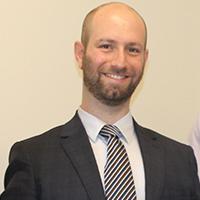You are here
Will Fewer Children Boost Demand for Formal Caregiving?
Working Paper*, Mar 15, 2019
Today, 25 percent of all caregivers of elderly are adult children. However, while the parents of the Baby Boom generation had three children per household on average, the Boomers themselves only have two. This project uses the Health and Retirement Study to assess how the number of children a person has affects demand for formal caregiving facilities using ordinary linear regression, a Cox proportional hazard model, and an instrumental variable approach. Results suggest that the lower fertility of the Baby Boom generation is likely to lead to greater demand for formal caregiving in the coming decades. For example, the instrumental variable estimates indicate that having one fewer child increases the probability of having spent a night in a nursing home in the last two years from 10.7 percent to 12.4 percent among those with two or more Activities of Daily Living limitations.

Gal Wettstein
Gal Wettstein is a research economist at the Center for Retirement Research at Boston College. He conducts research on health care and health insurance markets, long-term care, public health insurance, public pensions, retirement, savings, and individual taxation. Examples of his past work include research on the effect of Medicare Part D on labor supply; crowd-out of private insurance by Part D; the coverage expansions due to the Affordable Care Act; the opioid epidemic, and substitutability and complementarity among health services. Wettstein was a recipient of a 2015 CRR and Social Security Administration Dissertation Fellowship for work on the labor impacts of Medicare Part D.

Alice Zulkarnain
Alice Zulkarnain is a research economist at the Center for Retirement Research at Boston College. She conducts research on the labor supply of older workers, joint retirement, international retirement policies and health behaviors of the aging. She has also worked for ABN AMRO Asset Management. Before joining the Center, she earned a doctorate in economics from the Graduate Center – The City University of New York in the fields of labor economics and health economics, and was a Demography Fellow at the CUNY Institute for Demographic Research. She was a post-doctoral fellow in the Economics of an Aging Workforce at the National Bureau of Economic Research (NBER) and is a Research Affiliate for the Institute for the Study of Labor (IZA).
*This working paper was made possible by the US 2050 project, supported by the Peter G. Peterson Foundation and the Ford Foundation. The statements made and views expressed are solely the responsibility of the authors.
